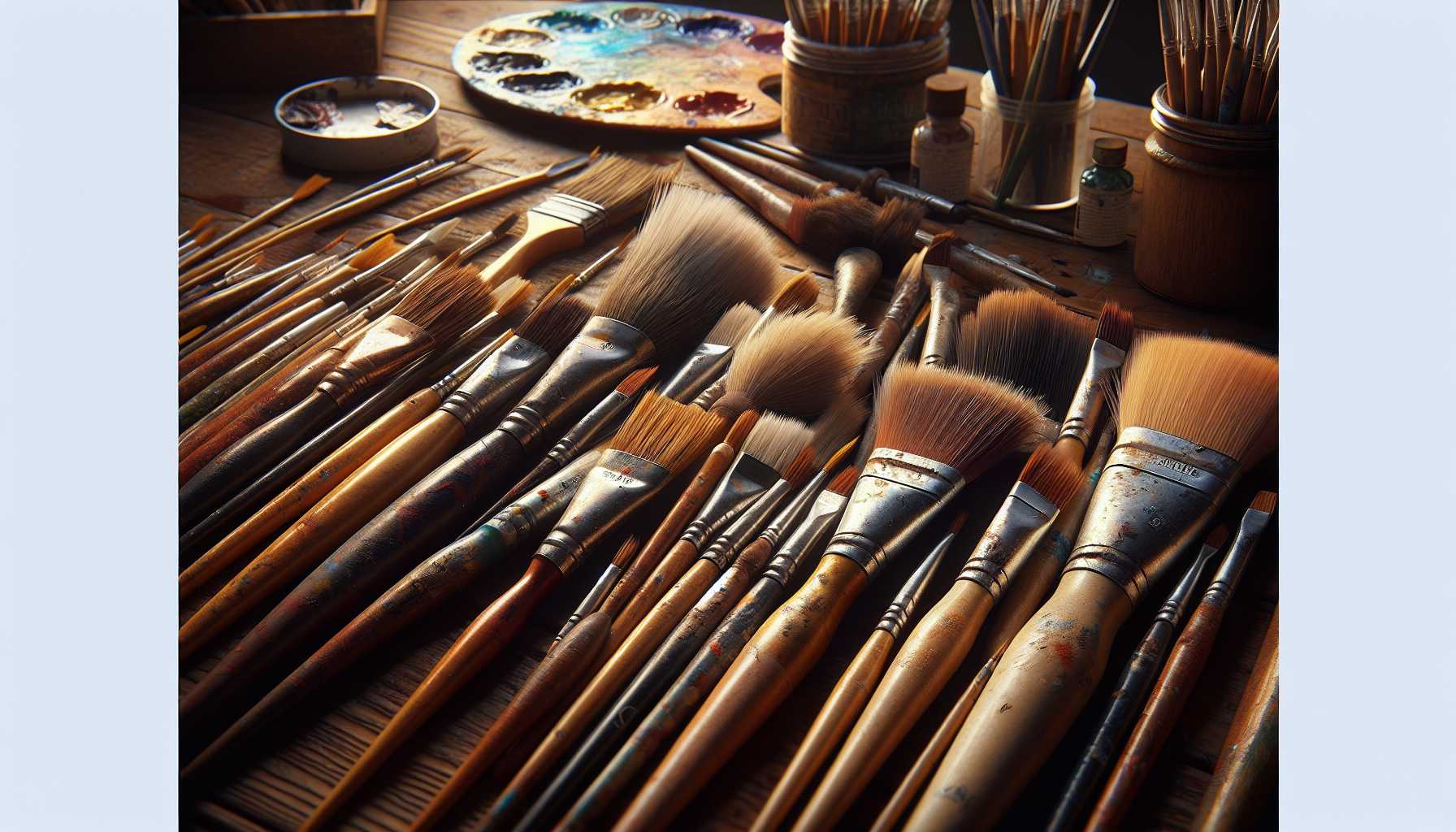Embarking on a venture into the world of art is thrilling! However, standing before a display of countless paint brushes might seem daunting. Fear not – I’ve got you covered! Read on for a user-friendly guide on how to select the best quality brushes for your first artistic endeavors.
Grasping the Different Bristle Types
First things first, we need to discuss bristle types. Brushes with natural bristles, crafted from animal hair, are simply terrific when it comes to oil paints. On the other hand, synthetic bristles, usually composed of nylon or polyester, are ideal for acrylic and watercolor paints.
Try to imagine bristles being similar to your own hair – they need to be soft yet resilient. Feel free to gently touch them in the store. High-quality bristles will rebound back to their initial shape.
The Significance of Size
As a beginner, there’s no need to hoard every brush size available! A good place to start is by selecting these key sizes:
- A large flat brush (size 12)
- A medium round brush (size 6)
- A small detail brush (size 2)
With these three, you can tackle a variety of beginner-level painting tasks.
Checking the Ferrule
The ferrule plays a crucial role in a paintbrush; it’s the metal part that secures the bristles. Much like the foundation of a building, it needs to be sturdy! Give it a little squeeze. If it feels unsteady or wobbles, it’s best not to buy it.
Handle Quality Matters
You want a handle that feels comfortable and secure in your grip. The best handles are typically made from wood or high-grade plastic. Avoid anything with uneven surfaces or noticeable chips. Remember, you’ll be using these brushes for extended periods!
The Price Versus Quality Debate
Let’s face it – splurging on the most expensive brushes may not be necessary when you’re still finding your footing as an artist. That said, it’s also wise to steer clear of the cheapest ones. Brushes in the mid-price range can offer excellent quality for those still learning. Consider this a valuable investment in your artistic journey!
Caring for Your Brushes is Essential
Good care is a prerequisite for a long-serving brush. Ensure you clean your brushes thoroughly after every painting session. Store them with the bristles facing upward or lying flat. And never leave them soaking in water – it harms the bristles irreversibly!
Conducting the Shed Test
Before making a purchase, softly glide the bristles over your hand. If many bristles fall out, consider this a warning sign. A few loose ones are to be expected, but a well-made brush maintains its bristles firmly.
Start Modestly, Progress Intelligently
Kickstart your artistic journey with a basic set of quality brushes, rather than a large set of substandard ones. As your style evolves, you’ll become well-versed in knowing which additional brushes you need.
Always remember, your paint brushes are vital assets on your artistic path. Take excellent care of them, and they’ll aid you in producing stunning art for many years to come. Enjoy your painting journey!
